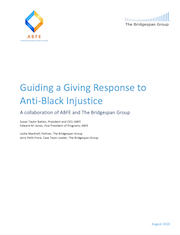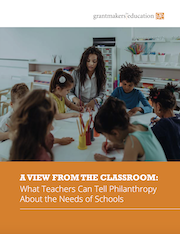Site Search
- resource provided by the Forum Network Knowledgebase.
Search Tip: Search with " " to find exact matches.
Six million immigrants in the US have jobs that could increase their risk of contracting the virus -- from physicians and home health aides to agriculture and food production workers. Another 6 million work in areas that have suffered major financial loss, including the restaurant and hospitality industry, in-home childcare, agriculture, and building services.
Yet, documented and undocumented immigrants are ineligible for federal relief funds and government-sponsored safety-net programs. Many “essential” workers lack health insurance. Language barriers often make getting services difficult. And, fear of repercussion if they test positive for COVID or uncertainty around immigrant policies prevent many immigrants from even seeking assistance.
During this webinar briefing, we will hear from Abel Rodriguez, Director for the Center on Immigration and Assistant Professor of Religion, Law, and Social Justice at Cabrini University and Sara Cullinane, Director of Make the Road New Jersey.
Topics will include:
• How immigrants and their families have been impacted by COVID, nationally and in our state.
• Supporting immigration policies and programs that advance the social and economic well-being of immigrant populations.
• Efforts in New Jersey communities to provide direct support, education, and other needed resources to immigrants during the pandemic.
Nearly 1 in 4 New Jersey residents is an immigrant. And despite their vital importance to this state and our country’s culture and economy, immigrants are often left out of programs and denied services that are critical for recovery. Join us for an important briefing on why your organization’s response to COVID must uplift immigrants and their families – now and for the future.
Cost: Free for CNJG Grantmakers. $50 for Non Member Grantmakers
Webinar Video
The focus and scope of this white paper is on the transformation of mobility for older adults in rural areas through technological innovations. The white paper explores the potential for technology research and innovation to transform the rural mobility landscape and, in the process, empower older Americans through meeting their travel needs in an equitable and effective manner.

The Bridgespan Group collaborated with ABFE to co-author "Guiding a Giving Response to Anti-Black Injustice," with additional input from proximate leaders. This memo offers philanthropy potential paths to invest in organizations and movements within the Black-led racial justice ecosystem. It provides principles for giving that can help funders make investments with sustained change in mind, and highlights priority investment areas and example organizations within those areas that represent tangible opportunities. Our list is not exhaustive, but rather a starting place for funders who seek to support Black-led organizations and movements committed to anti-racist social change.

What can over a million teachers tell us about the needs of schools? This report digs into the data from 1.8 million teacher requests on the crowdfunding site DonorsChoose to tell the story from inside today's classrooms. We feel this data provides a roadmap for funders seeking to support students directly, but also for funders seeking broader reform of U.S. education policy and systems.
